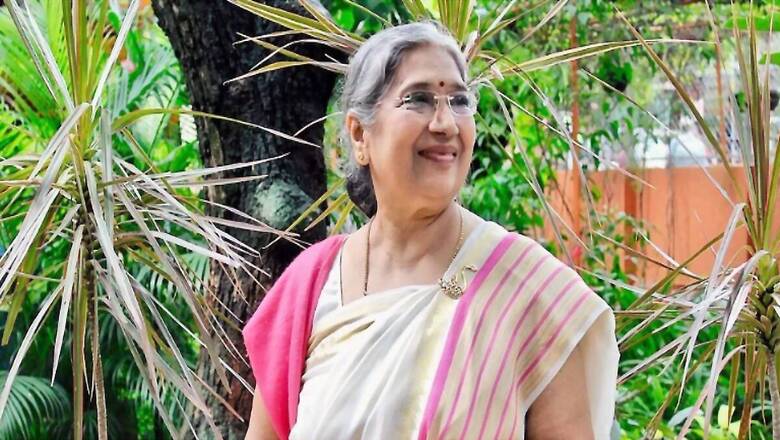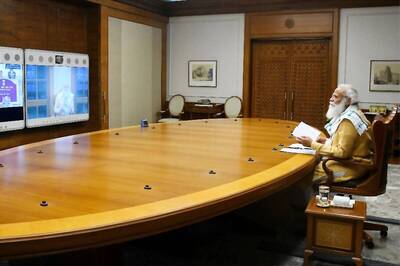
views
More than 20 years ago, eminent Gurus and yoga power couple, Dr. Hansaji Jayadeva Yogendra and Dr. Jayadeva Yogendra of The Yoga Institute Santacruz, Mumbai, began tirelessly spreading a profound message through their teachings.
Calling it the ‘Yoga of Caring’, they emphasised that yoga can benefit our lives and society. They taught that an attitude of caring while practicing yoga, performing duties, and enjoying recreational time leads to greater balance and positive states of mind. “Do your duties with more ‘heart’ and dedication,” they said.
On the occasion of the 10th International Day of Yoga– with the theme ‘Yoga for Self and Society’– this teaching gains new relevance.
In this article, Dr Hansaji Yogendra shares insights into aspects of caring, self-empowerment, and sincerely performing our duties. Here are edited excerpts from an interview.
Being in a state of balance: Caring is usually associated with women as they are emotional by nature. So, we may keep referring to women, but what we really mean is ‘feminine energy’.
Our first duty is towards ourselves – maintaining inner balance. You should be free from pain and suffering. Do whatever you need to do to bring this balance into your life. Then, when you work, you will enjoy it and do it sincerely.
Usually, caring people don’t live in this balanced state. Driven by emotions, they want to make everyone happy and tend to neglect themselves. If they have some time, rather than sitting quietly with eyes closed and breathing deeply, they immediately think of doing something for others. Women need to work more in this area.
Remember, it is not possible to satisfy everybody: if one is happy, another may be unhappy. So, only do your duty sincerely.
Be enthusiastic and spread that joy: Everyone should know how to take care of themselves so they can be enthusiastic, peaceful, and joyful within. When you are all these, you can spread it around, too.
Be aware of your state – if you find yourself disturbed, care for your mind and bring your emotions back to normal. With disturbed emotions, you can only disturb others – not help them.
Remembering the order of duties: First, take care of yourself by maintaining your own balance. Then, the next duties are towards family, work, society, nation, and humanity. We are supposed to see that our duty follows this order, and that we don’t overdo things for society or the nation, while ignoring the earlier areas. There has to be a step-by-step duty management.
Often, healthcare professionals and social workers ignore this first duty to self. They are told to love and care for others, leading to health problems due to neglecting themselves and poor awareness of proper nutrition, sleep, etc. Also, in helping others, they get overinvolved in many areas, or else they constantly feel guilty. This must be avoided: don’t make social activities your only aim.
How women can empower themselves: A woman’s job often requires multitasking – managing family, home, self, office, and social obligations.
With so much to do, unless she is confident, capable, and enthusiastic, she won’t be able to keep pace. She would get tired and frustrated, and blame herself if there is any slip-up.
What is the remedy? Know yourself. Understand your individual traits – who you really are. Don’t compare yourself with others. Understand your body, become aware of how you stand, notice if your face tenses up while talking, each movement and sensation. Know your likes and dislikes, sensitivities, and emotional needs. Once you are aware of who you are, you will be confident and able to manage things. Attend to yourself once you have identified your needs.
This is something every woman has to work on for herself. When they do that, they will definitely empower themselves.
How women – and all carers – can turn life around: It is wrong to think you can finish all work and then rest. Work will never end: one task finishes and another comes up. After all, there are so many areas to look after.
Be more of a manager; systematise your work-life. Prioritise work and set a time to complete it. We are all bound by time – 24 hours – so plan and execute well.
Learn to take help from others in the family, household, and relationships. Even though you can do it yourself, involve everyone and join together to do the work. Change your thinking a bit and know how to turn around life.


















Comments
0 comment